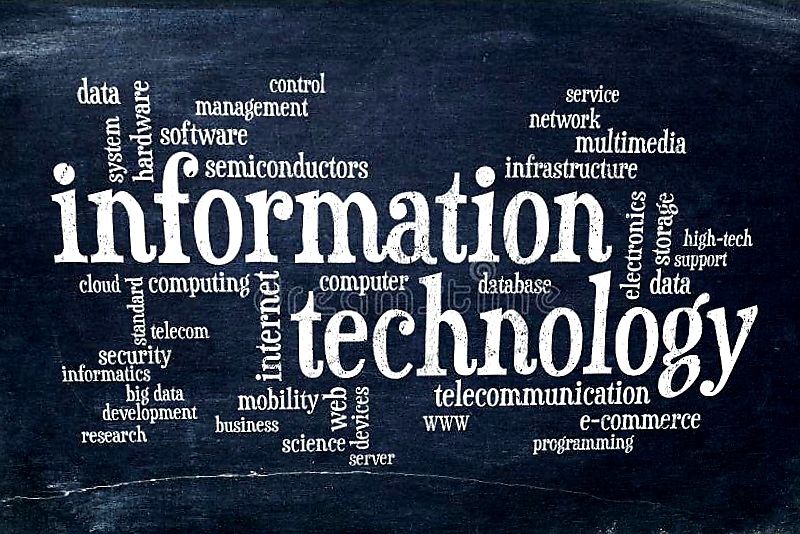In today’s fast-paced digital world, information technology (IT) has become an essential component of our daily lives. From consumer devices to massive enterprise systems, IT is the foundation of modern society’s infrastructure. But what is Information Technology, and why is it so vital?
What is information technology? Information technology, or IT, refers to the use of computers, networking, storage, and other physical equipment, infrastructure, and procedures to generate, process, store, secure, and share all types of electronic data. IT is a wide field that encompasses everything from your computer’s hardware and software to the servers and data centres that run the internet.
Groundbreaking Innovations in Information Technology You Need to Know
The core component of IT
Hardware refers to physical devices such as computers, servers, and networking equipment. Hardware is the foundation upon which all IT activities are constructed. Without strong hardware, the software programmes and networks that power commercial operations and personal interactions would not work properly.
Software includes the programmes and operating systems that operate on hardware. This ranges from word processors and databases to large enterprise apps. Software enables users to execute certain jobs and procedures, promoting productivity and innovation in a variety of industries.
Networking is the process of linking numerous computing devices to share resources and information. This encompasses LANs, WANs, and the Internet. Networking enables global communication, collaboration, and data exchange.
Data storage is the process of saving information in digital format so that it can be accessed and utilised later. Storage options include local hard drives, solid-state drives, and cloud-based storage systems. Effective data storage is critical for data management, backup, and disaster recovery.
Security: As data grows more valuable, it must be protected from unauthorised access, breaches, and cyber threats. IT security measures include encryption, firewalls, antivirus software, and secure authentication techniques to protect sensitive data.
The Role of IT in Different Sectors
Business & Commerce: IT has transformed how firms function, providing tools for automation, data analysis, and communication. ERP systems, CRM software, and e-commerce platforms are just a few examples of IT solutions that help businesses optimise processes, improve customer experiences, and grow.
Healthcare: Information technology (IT) is critical to enhancing patient care and operational efficiency. Electronic health records (EHRs) enable healthcare professionals to securely share patient information. Telemedicine and mobile health applications provide access to medical care, especially in distant places.
Education: Information technology has altered education by enabling online learning, digital classrooms, and educational resources. Learning Management Systems (LMS) and Massive Open Online Courses (MOOCs) offer flexible and accessible learning possibilities to students globally.
Governments employ IT to improve public services, increase transparency, and involve citizens. E-government efforts include online portals for tax filing, social services, and public records, which make government services more accessible and efficient.
Entertainment and Media: IT plays a critical role in content generation, dissemination, and consumption. Advanced IT systems fuel streaming services, video games, and social media platforms, allowing consumers to enjoy rich and dynamic experiences.

The Future of Information Technology
As technology advances, the future of IT promises even more innovations and opportunities. Key trends influencing the future of IT include:Artificial intelligence and machine learning are revolutionising IT by allowing systems to learn from data, predict outcomes, and automate complicated operations. These technologies are being used in a variety of applications, including chatbots, virtual assistants, predictive analytics, and self-driving cars.
Artificial intelligence and machine learning are revolutionising IT by allowing systems to learn from data, predict outcomes, and automate complicated operations. These technologies are being used in a variety of applications, including chatbots, virtual assistants, predictive analytics, and self-driving cars.The Internet of Things (IoT) connects common gadgets to the internet, allowing them to communicate and share data. This transformational movement has only just begun, with smart homes, wearable technology, and industrial IoT applications.
Cybersecurity: As cyber threats evolve, cybersecurity remains a major issue. Advances in encryption, biometrics, and threat detection are critical for protecting data and preserving the integrity of information systems.
Blockchain technology provides a safe and transparent mechanism to record transactions and manage data. Beyond cryptocurrencies, blockchain is being investigated for applications in supply chain management, healthcare, and digital identity verification.
Conclusion
Information technology is the driving force behind the digital revolution, influencing every area of our lives and reshaping industries around the world. IT has had a deep and far-reaching impact, transforming everything from business operations and healthcare to education and entertainment. Individuals and organisations alike will benefit from remaining current with technological breakthroughs and seizing the opportunities they bring as we move forward. Whether you’re a tech enthusiast, a company leader, or just someone who uses a smartphone, understanding the fundamentals of information technology will help you navigate and prosper in the digital age.

hello
Hello,what can i help you with?